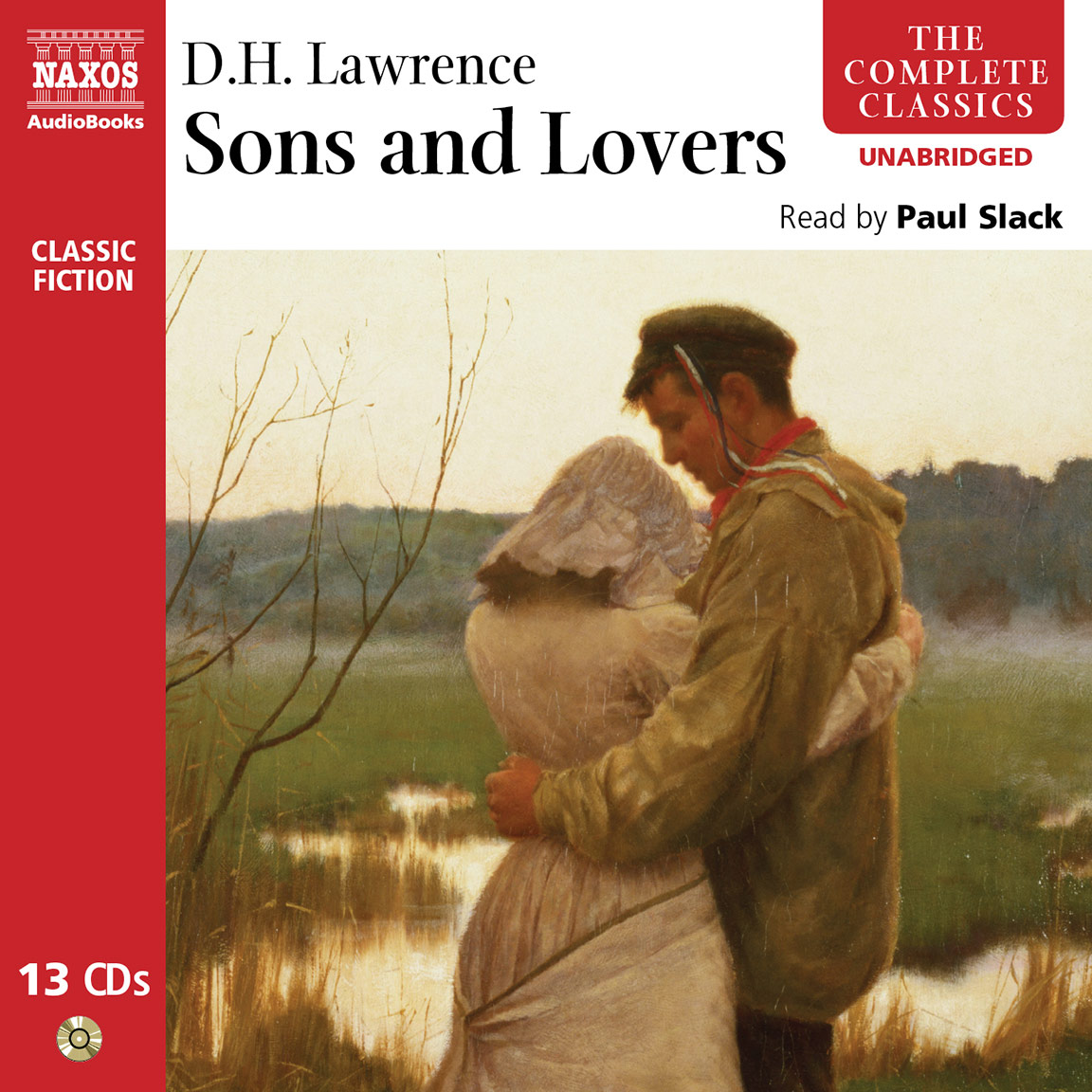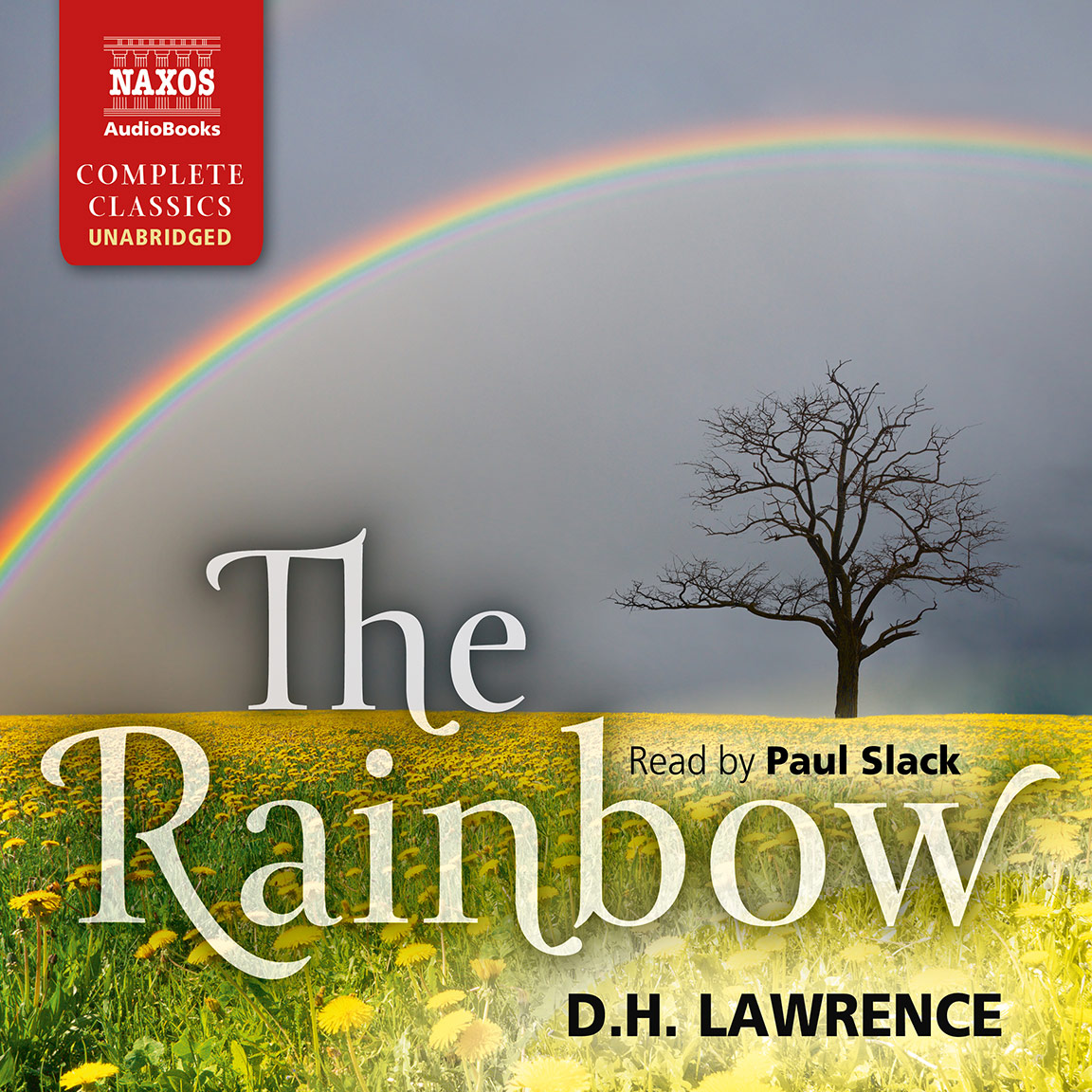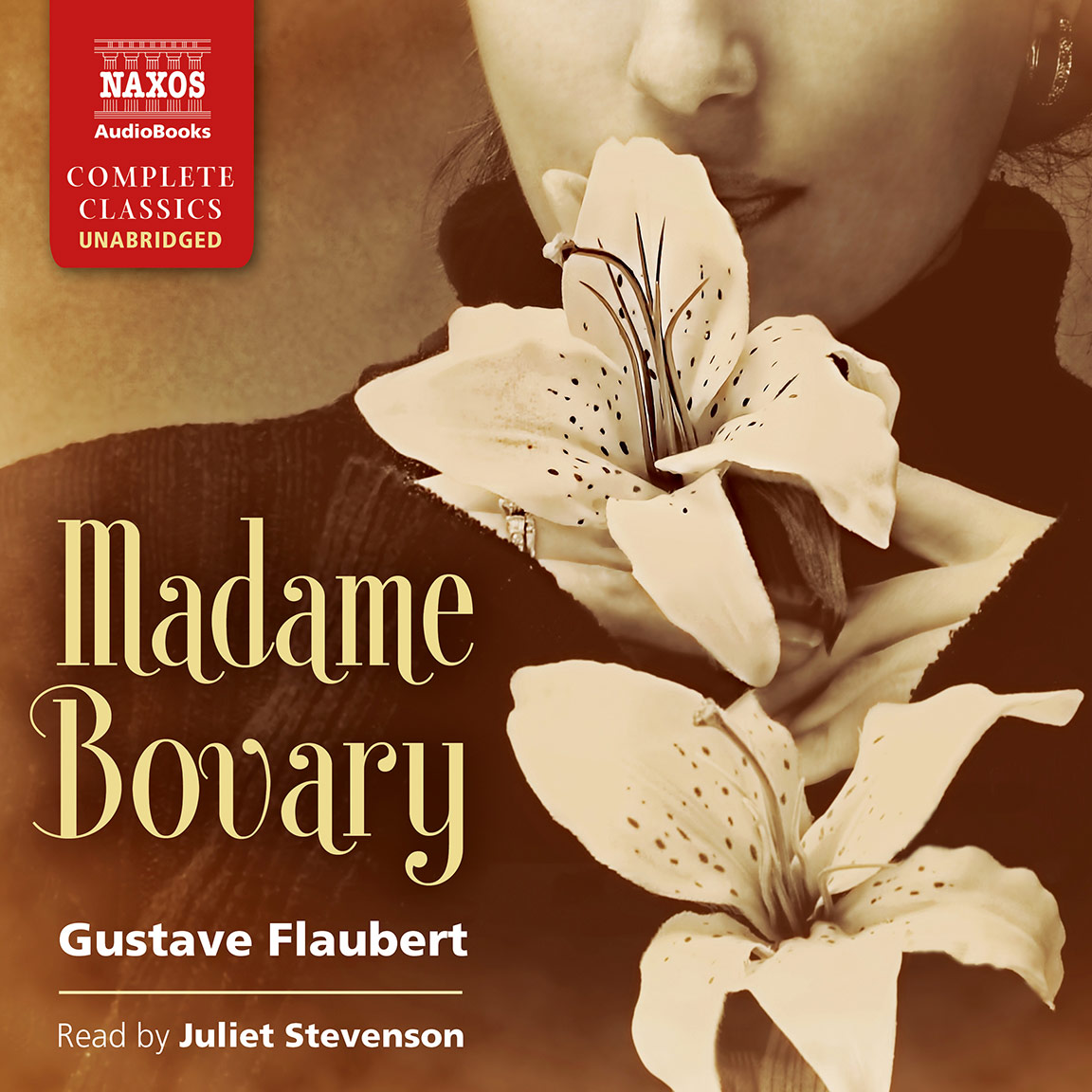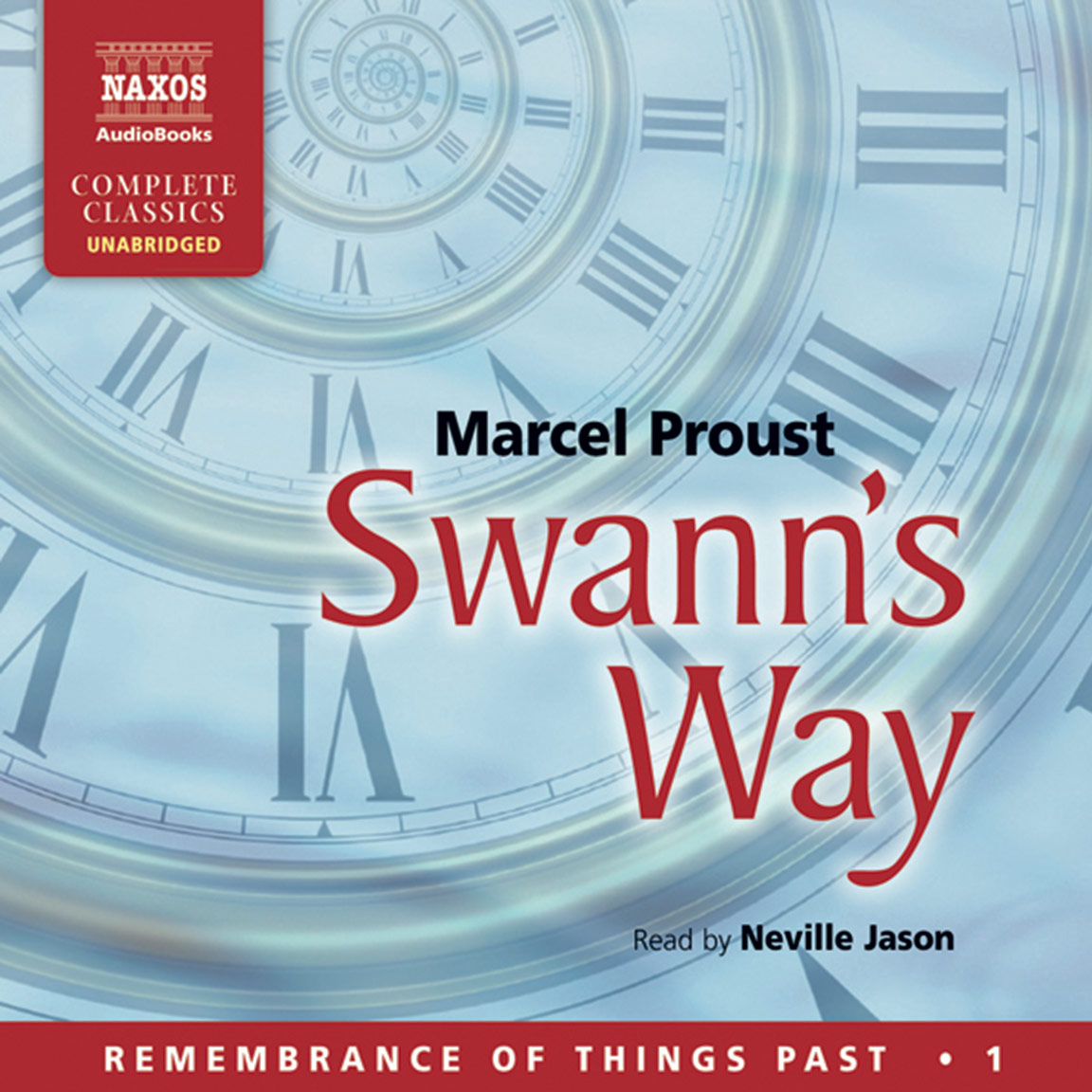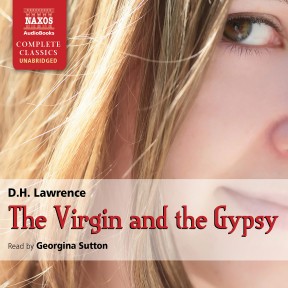
Audio Sample
D.H. Lawrence
The Virgin and the Gypsy
Read by Georgina Sutton
unabridged
In a claustrophobic household, oppressed by her blind, toad-like grandmother and a cowardly, conventional father, Yvette’s exuberance seems doomed to suppression. But meeting a gypsy awakens unfamiliar emotions in her, making her challenge the family’s accepted morality. As she wavers between conformity and rebellion, a flash flood threatens her home, her world and her life. This short novel deals with all the major themes of sexuality and identity that made Lawrence one of the most original and influential writers of the 20th century; and it is a satirical, atmospheric, moving and surprising masterpiece.
-
3 CDs
Running Time: 3 h 37 m
More product details
ISBN: 978-1-84379-453-0 Digital ISBN: 978-1-84379-454-7 Cat. no.: NA0028 Download size: 53 MB BISAC: FIC004000 Released: May 2011 -
Listen to this title at Audible.com↗Buy on CD at Downpour.com↗Listen to this title at the Naxos Spoken Word Library↗
Due to copyright, this title is not currently available in your region.
You May Also Enjoy
Reviews
For many, the legacy of D. H. Lawrence begins and ends with Lady Chatterley’s Lover. This is unfortunate as the British writer left behind a compelling canon of short stories, novellas, and novels worthy of ongoing attention outside of academic literary circles. The place of The Virgin and The Gypsy in this canon, however, is problematic as it was published posthumously in 1930, four years after it was written, and apparently left as an uncompleted, or at least unpolished, novella.
With some justification, what survived has been described as an adult fairy tale, largely due to the overt symbolism of the descriptions and characters. The central cast is the family of a shallow Rector; his blind, domineering, toadlike mother; her mean-spirited spinster sister; and the Rector’s two daughters, Yvette and Lucille. Suspected of being tainted by the life-force of their mother – who abandoned the family when the girls were young – the daughters are chafing against a world they see as drab, stale, ordinary, meaningless. Then they meet a gypsy family led by a virile father who sparks Yvette’s first flushes of womanhood. On one hand, Yvette is intrigued by the exotic otherness of the gypsy and, on the other hand, feels herself ensnared in the comfortable, if sterile, family nest.
The Virgin and The Gypsy uses typical Lawrence tropes and themes; for example, his short story, ’The Horse-Dealer’s Daughter,’ juxtaposes a gray, loveless existence with the hot, fiery power of passion. The barriers in the British class system demonstrated in Lady Chatterley are echoed by the working class gypsy and the protected Yvette. But a reader need not be familiar with Lawrence to be drawn into the vivid, tightly-sketched psychological exploration of circumstances that likely mirror worries we all share – to dare to break out of the familiar or be pulled into a dull conformity that crushes the human spirit. In fact, The Virgin and The Gypsy could serve as a good introduction into the realm of D. H. Lawrence due to its brevity, so long as readers know it contains but a taste of Lawrence’s range.
As this is an audiobook that clocks in at 3 hours and 36 minutes, it should be mentioned that reader Georgina Sutton does a nicely credible job of narrating the text. The story doesn’t require a deft hand at accents or dialects, but rather the tone of a storyteller relating the events of friends or family they know intimately. It’s a good read, if one understands it’s a diamond in the rough and can accept the surprisingly melodramatic conclusion.
Dr Wesley Britton, BookPleasures
Lucille and Yvette Saywell are young girls who feel oppressed in their middle class home in the rectory. The girls are irritated by their old grandmother and angry aunt, and they feel doomed to a life of boredom and middle class existence. But when Yvette meets a gypsy, strange feelings rise in her that threaten all accepted morality of the family and society. As expected, D.H. Lawrence questions and casts aside all accepted morality and societal norms in this short novella. Lucille and Yvette live under the dark cloud of their mother who abandoned her husband and children and ran away with a younger man. Yvette has never been in love and scorns the attention of the young men of her social circle. She is disdainful of her family and her home and openly flouts rules and their idea of morality. These young girls are full of life and promise and feel that they are wasting away in their prison-like home. This is a short novel, but Lawrence packs a lot into it. The characters are well drawn, and easy to recognize: the old grandmother who holds onto her position of power in the house, the frustrated aunt who is angry about wasting away her life and her sex in service to her mother, the loving, ineffective father who wants to be liked. A big part of the problem is that the young boys and girls in this small town actually have everything. What they lack is intellectual stimulation and real difficulties. This brings about a sense of ennui and disdain for their families. Which is why when Yvette meets the gypsy, her interest is piqued. He represents freedom, virility and earthiness. Only at the end does she realise how she feels about him and learns his name and sees him more than a romantic concept. The end seemed a little rushed and incomplete (this novella was published posthumously) and a little overly dramatic. The audiobook: I suggest that you do listen to this novella in audio. Georgina Sutton does a great job of creating the ethereal Yvette, the old grandmother, the choleric aunt and the gruff and real gypsy. I only listened to it once, but bits of dialogue stand out in my memory for which the audio production is the reason. I will definitely be looking for more classics to consume in audio. Having someone interpret the material intelligently adds so much to my absorption and enjoyment of the book. Highly recommended for anyone who enjoys classics, especially D.H Lawrence. I do suggest you try the audiobook, it greatly added to my appreciation of this short novel.
Pujitha Krishnan Fernandes, Bookpleasures
Brought to life by the theatrically trained Georgina Sutton, The Virgin and the Gypsy is a captivating, unabridged audiobook performance of D.H. Lawrence’s story about a young girl raised by a stifling family, who re-examines how she looks at the world upon meeting a gypsy. As she is poised on the border of conforming to expectations and rebelling against them, a flash flood brings immediate danger to her home and her life, forever changing her world. A powerful novel of sexuality and identity, The Virgin and the Gypsy satirises antiquated societal views and provides a sweeping saga of rethinking the self and one’s lifelong plans. Highly recommended.
The Audiobook Shelf, Midwest Book Review
In the early 20th century, D.H. Lawrence scandalised the literary world with his frank treatments of sex and human relationships. Although posthumously published, incomplete, and written in an almost fairy-tale style, this story is all about relationships, relations, and love. A vicar lives with his family – daughters, domineering mother, and bitter sister. All have been permanently scarred by the long past elopement of his flighty wife. When his youngest daughter, Yvette, meets a charismatic Gypsy man, she is tempted both by the man and by what she sees as a free and unconventional life. What will she decide?
Verdict: Georgina Sutton has a superbly trained voice that she uses to great advantage in this reading. Recommended for all listeners interested in 20th-century literature.
Library Journal
Georgina Sutton delivers the story of a virgin daughter of a vicar and her fascinating romantic entanglement with a gypsy in East Midlands, England. Set after WWI, the story recounts the events of daily life in the rectory, where all action is stifled by the mores of the day. Sutton flawlessly describes how Yvette, travelling throughout the countryside, comes across a gypsy camp, full of colourful, warm, free spirits. One of them in particular catches her eye. Sutton’s subtle reading of Lawrence’s character studies – especially her portrait of Yvette’s longing for love – draws the listener into this story of self-discovery.
M.B.K., AudioFile
Booklet Notes
D.H. Lawrence’s reputation as a promoter of sexual freedom and liberator from the prudish constraints of Victorian morality means that if he had written a life of the Virgin Mary, people who had only read the title would open it looking for the dirty bits. This is largely the result of the furore that surrounded his most explicit novel, Lady lyley’s Lover, which was banned in its full form for decades and only published in unexpurgated form after a very public trial in the 1960s. The eager hands hankering after illicit thrills were happily shocked when they finally got to open that one; but they would find little to satisfy any prurient cravings in The Virgin and the Gypsy, despite its title. The shame is that this could be seen as a disappointment.
The Virgin and the Gypsy was written in 1926, two years before Lady Chatterley’s Lover; but Lawrence had already established a reputation as a breaker of taboos. He was born in Nottingham into a poor mining family where the poverty was exacerbated by his father’s drunken violence. Lawrence hated him, and with a similar passion loved his mother, who responded with a devotion that showed itself in a determination to see him educated. He went on to become a teacher for a while; but he had also discovered an ability to write and had a lifelong interest in books. Poems, short stories, plays and his first novel were all being written and published by 1912, at which point he decided on a career as a writer.
The house is not just
a beautifully realised
example of a type of
repressed home: it is
every middle-class
repressed home
Partly because of his poor health he travelled extensively throughout his life, beginning with trips through Europe in the years prior to the First World War. He met and eventually married Frieda Weekley, who, apart from being married to a former tutor of his at Nottingham University at the time they met, was the cousin of Baron von Richthofen, the German air ace known as the Red Baron. This association with a German (quite apart from Lawrence’s decidedly un-nationalistic stance) was naturally a matter for suspicion when the couple returned to England at the outbreak of war; they were subject to harassment throughout the conflict, eventually being obliged to leave their home in Cornwall on suspicion of spying.
By this time Lawrence was either known to or a friend of several influential writers, critics, publishers and artists, including T.S. Eliot, Ezra Pound, Katherine Mansfield, John Murray and Edward Garnett; and he was being published in modernist journals. The shift towards modernism had started well before the War and was concerned (among many other things) with a move away from the traditional, Victorian forms of art, with their comfortable morality and predictable narrative forms, towards a deeper and truer understanding of the workings of the human mind and heart.
For Lawrence this was all connected to his passionate engagement with the rawer, more natural elements of the self which he felt were destroyed either by the industrialisation of the workforce or the stultifying moral obligations that precluded a true expression of feeling. Unfortunately for him, his novels were outraging the authorities (who, one might have thought, would have had greater things to worry them in 1915), and his novel The Rainbow was banned for being obscene.
Given this rebuttal from the literary establishment, his experiences in Cornwall, his poor health (tuberculosis and pneumonia especially), and the fact that he had practically no money, it is hardly surprising that he left England as soon as he could. He went into a kind of voluntary exile: to Italy, Australia, France, Sri Lanka, America and then Mexico, and any number of places in between. But for all his travelling there is a sense in which his childhood and the England of his early years never left him. He wrote ceaselessly: books of criticism (some of which are outstanding and were influential in their time), lectures, translations, travel writing, poems about the animals he observed in Mexico and elsewhere; but his greatest works were about England and the English, wherever he happened to write them. In the early 1920s, he had bought a ranch in New Mexico where it looked for a while as though the climate and his reception as a critic might enable him to live comfortably; but further illness forced him back to Europe.
The Virgin and the Gypsy was written in Italy, and as with many of his greatest works there is no doubt that the author has a point to make. But Lawrence writes with such an intense sense of place and personality that the descriptions become invested with almost symbolic power, overwhelming any danger of mere pedagogy. In The Virgin and the Gypsy, the house is not just a beautifully realised example of a type of repressed home: it is every middle-class repressed home. The moral cowardice of the father is not just a shifted memory of Lawrence’s own father: he is the patrician of so many English households. But whereas in some of his other fiction Lawrence’s passions could prohibit humour, here there is an overtly satirical air, with sequences of dialogue that are accurately, uncomfortably hilarious. It is a short novel, but it deals with all his major themes and does so in a manner that is almost playful. He teases the reader with the suggestion of sex, knowing that anyone reading a Lawrence novel will expect something explicit, maintaining the tension only to be surprising and of course moving at
the end.
Lawrence was a passionate, sensitive man who believed in the value, perhaps even grace, of humanity’s natural self and its capacity for tenderness. The bans and repression that his work suffered caused him suffering, too. It took some years before critical and popular appreciation recognised the effect he had had on literature; but he was profoundly influential on later writers who either consciously tried to emulate him or simply found it was impossible not to be affected by his work. He furthered the nature of the novel and opened the way for a fuller understanding and expression of sexuality: almost the opposite of a desire to titillate, it was a central part of a philosophical and artistic vision.
Notes by Roy McMillan
